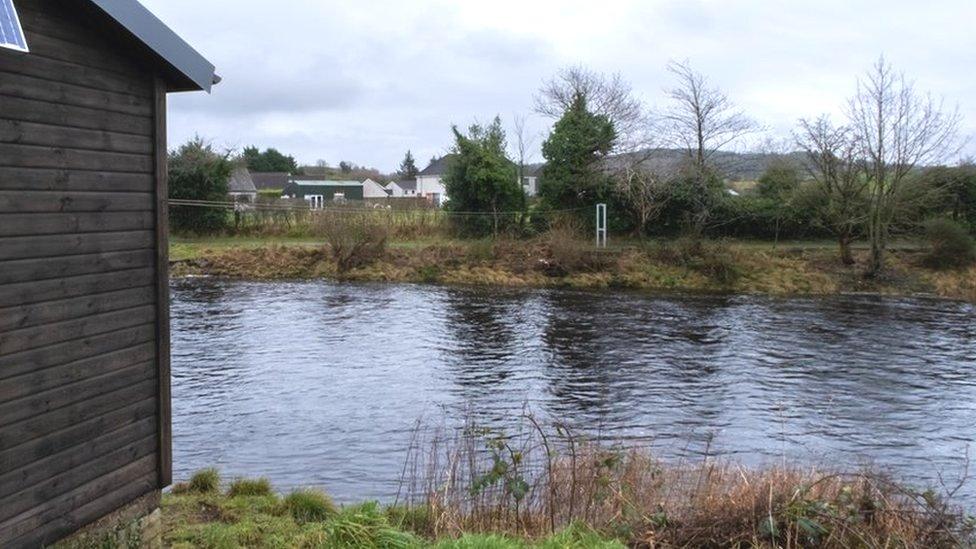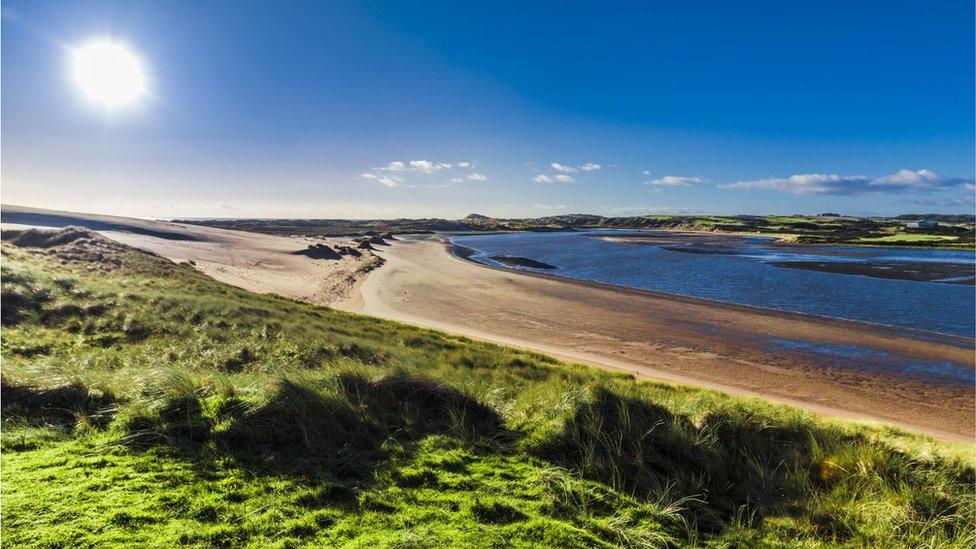Water shortages to become more frequent, says Sepa
- Published

River level monitoring station on the River Cree in Dumfries and Galloway
Water shortages could become more serious and frequent due to climate change, the Scottish Environment Protection Agency (Sepa) has warned.
The environment watchdog says drier summers in Scotland could seriously affect water supplies.
The warning comes after record breaking temperatures earlier in the week.
Scotland's east coast is facing the worst consequences, with regular below average rainfall across several regions.
Sepa has issued several water scarcity warnings across the country.
Most of the east coast is now classed by Sepa as being at "alert" or "moderate scarcity" level. The Don catchment has also been raised to moderate scarcity.
The Dee, Ythan, the Firth of Tay, Firth of Forth, Almond and Tyne catchments remain at moderate scarcity.
The Leven in Dumbartonshire has been raised to an "early warning", joining Galloway and Ayrshire.

Loch Lomond attracted Scots during the record breaking hot weather
Sepa water resources specialist Michael Wann said: "Scotland is a wet country but it doesn't always fall in the right place at the right time.
"The water shortages are becoming more serious.
"We've had a number of dry years recently and with climate change, we do expect that to be more frequent and more severe in the coming years."
Sepa has reported an east-west split, with the east of the country recording at least six out of eight months with below average rainfall.
Mr Wann said the west coast was in a "much better position" as rainfall is more frequent.
He said: "Because these events are becoming more frequent and more common, we are expecting summers in Scotland to be much drier.
"So it doesn't take a particularly long dry spell for us to see impacts in our rivers, in soils, and obviously businesses that use that water."
Sepa will work with businesses with large water requirements, such as distilleries and farms, to help them adapt and become more resilient.
Related topics
- Published8 July 2022

- Published20 July 2022

- Published18 July 2022

